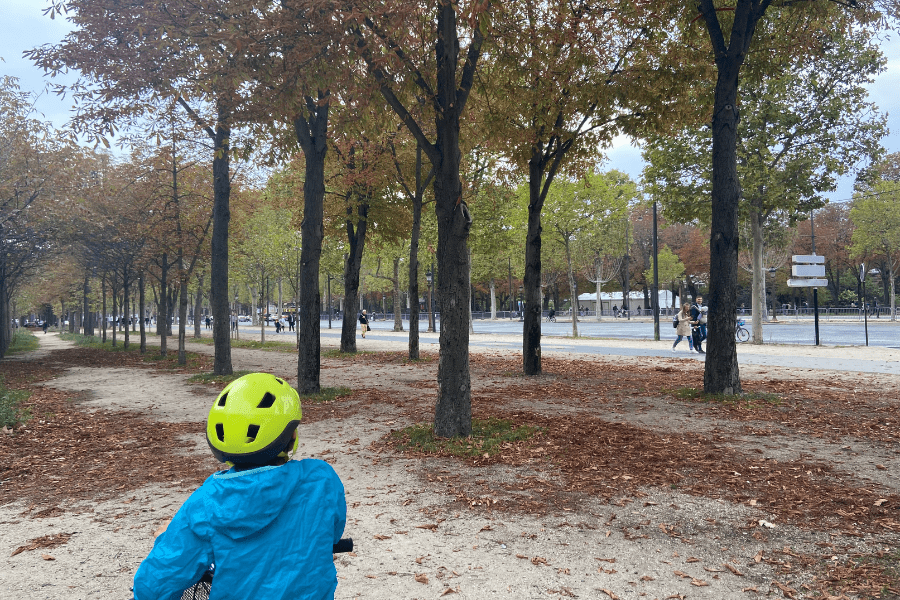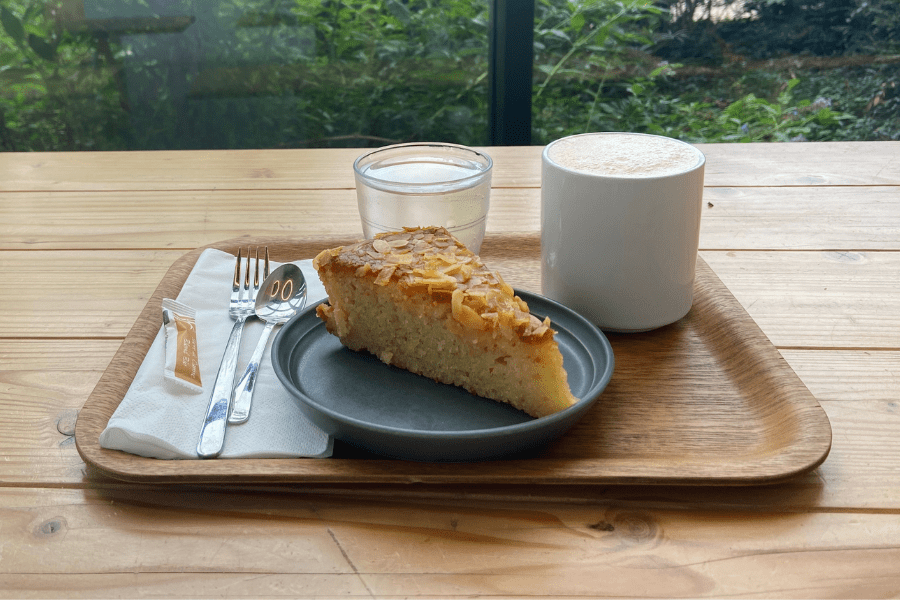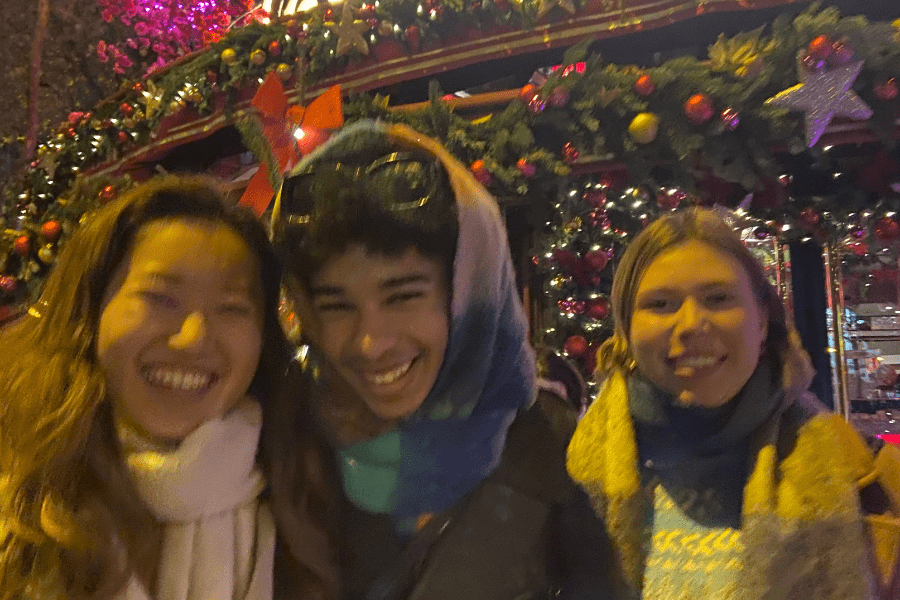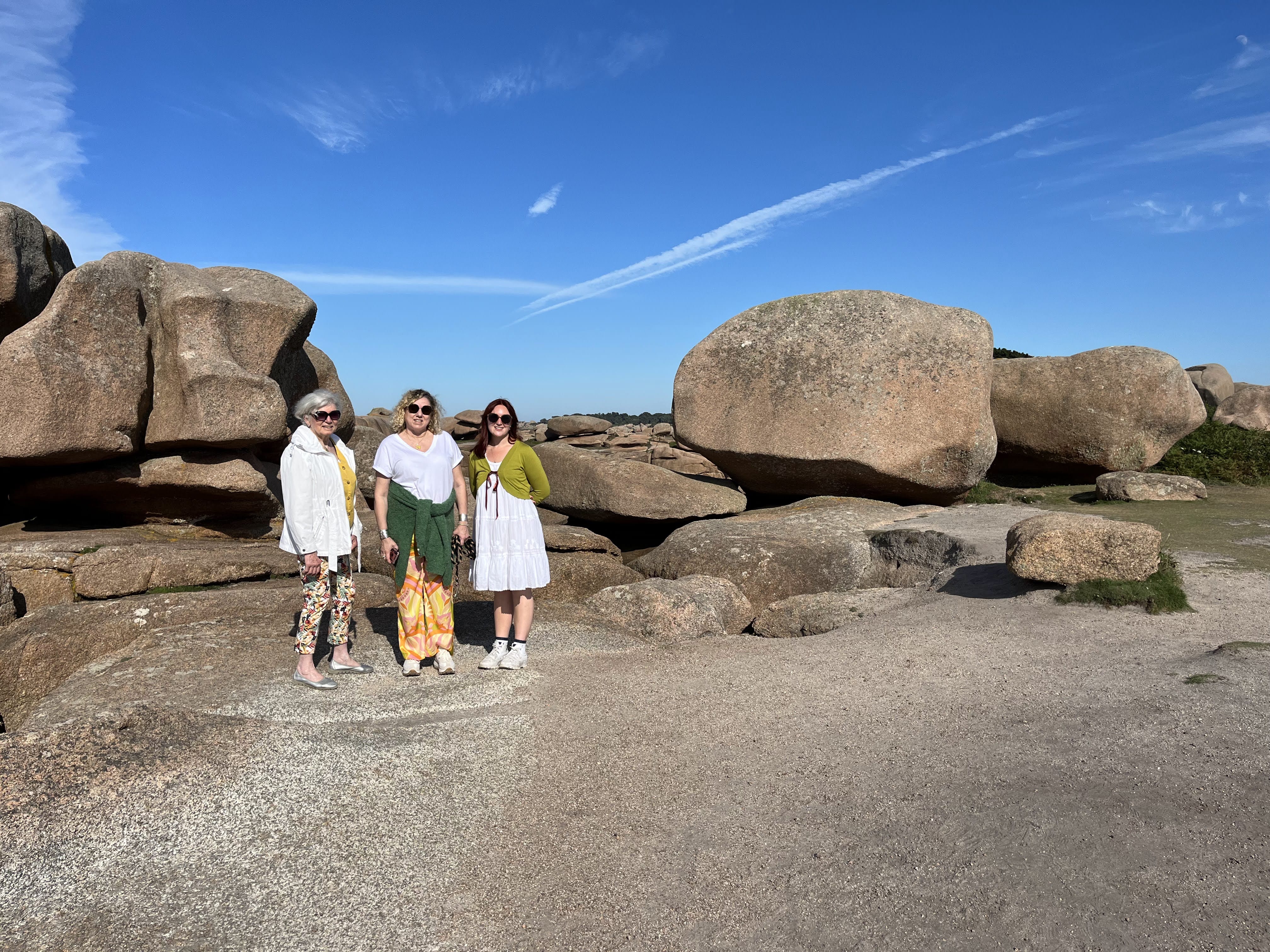Study Abroad in France: A Guide To Having the Time of Your Life
by Cheryl Zhang
It’s hard for me to believe that less than two months ago, I was still in Paris on my semester abroad. I’m currently sitting in my room in Pittsburgh, listening to a French music playlist and reminiscing on my four months spent in the city of lights. From meeting my host family, to navigating the French school system, to crazy travel experiences, there’s nothing I wouldn’t want to do all over again.
To help students considering studying abroad, I wanted to share my experience in France: the culture shocks I experienced, what I wish I did differently, and my takeaways from my time abroad. I also had the pleasure of interviewing two other Carnegie Mellon University students who studied abroad in France: senior Claire Duncan, who spent her summer in Rennes, and senior Maxwell Plottel, who studied abroad in Grenoble. I’ll start by highlighting some of our favorite study abroad memories before we get into the rest. Without further ado, c’est parti!
Favorite memories
One of my favorite memories during my semester abroad was a Sunday morning when my 9-year-old host brother begged me to go biking with him and his mom. We biked five miles from the 14th arrondissement (Paris is divided into 20 neighborhoods, or arrondissements) to the Bois de Boulogne, the forest to the west of Paris. It was a beautiful day, and once we got there we stopped by the lake to eat a snack before biking back into Paris to check out a flea market.

One of Claire’s favorite memories also involved an outdoor excursion. She recalled going on a two-hour hike along the coast with her host grandpa, where he told her about the rocks they saw along the way. “He was really sweet, and he was just really wanting to share the coast with me,” Claire said. Despite the age difference, Claire found it much easier talking to him than with her 22-year-old host sister, because he spoke French that was grammatically correct, compared to her host sister who used idioms and slang.
He was also eager to teach Claire Breton words. Claire’s host grandpa lived through a period when France was trying to eradicate regional languages; as a child, he was punished for speaking Breton. Nowadays, France is more supportive of regional languages and there are more schools that are trying to teach them. “It was interesting to hear his perspective and how he maintained that regional dialect, even when it was being punished in schools and by the government,” Claire said. “It's just a super different experience that he was generous in sharing [with me].”
Culture Shocks
Lack of places to work on your laptop
When moving to a new country, there are all sorts of culture shocks to be expected. One that I did not expect was the fact that it is nearly impossible to find public places equipped with what we in the United States consider to be essential: Wifi and a power outlet. I spent an embarrassing number of days trying to find a place to study. Once, some friends and I decided to spend the day studying together. I had read about a cafe that supposedly had Wifi and a view of the Eiffel Tower, but after enjoying a slice of cake and a coffee each, I was the only one who could connect to the Wifi. Undeterred, we decided to try a nearby library, only to find that there were no seats, and more importantly, there was no Wifi. And so another day without studying came to a close.

For the library without Wifi, I have no explanation. But many of Paris’ cafes have a no laptop policy; meals or even a simple coffee are meant to be enjoyed in the moment, without the distraction of technology. Maxwell noticed this as well. He would go to “a cafe and just read a book [and] have a coffee,” which is much more common to see in France than in the U.S. This also explains why servers at restaurants never bring the check unless asked; diners are supposed to take the time to enjoy their meal. Now that I am back in the U.S., I try to keep this mentality of taking the time to enjoy life in my daily life.
Showers and mealtimes
Claire’s biggest culture shock was “the shower situation”: unlike the American showers she was accustomed to, her shower in France had nowhere to put the shower head, causing her to accidentally spray water all over the bathroom. In my host family’s apartment, there was no shower curtain, so I almost flooded the bathroom once as well.
Claire also mentioned the fact that the mealtimes felt very strict, which meant she snacked less than she typically does in the U.S. It is true that French people tend to eat later, around 8 PM or even later, and the meals generally last 1-2 hours.
Even though these differences aren’t that big of a deal, they were daily reminders of the fact that people do things differently in different places, and it was interesting to experience different ways of life.
What I wish I knew
You don’t need to travel as much as you possibly can to have a good time!
There aren’t many things I would have done differently, since many of my mistakes were valuable learning experiences. But one regret is traveling as much as I did. I visited six countries during my semester abroad, and towards the end I was too exhausted to really enjoy traveling. I also missed out on activities going on in Paris, as well as time that could have been spent with my host family. So even though it is incredibly exciting to get to a new country and start planning trips with your friends, remember that you’re in a new, exciting place that is worth exploring as well.
Meeting new people can be hard but is always worth it!
For Claire, studying abroad was a much more isolating experience than expected, because it was difficult meeting people when speaking a new language. However, she made an effort to go out and meet people even though she was tired and knew it would be difficult, and she never ended up regretting it. And that’s such a special thing: to meet and talk to people that you wouldn’t have been able to communicate with had you not started learning a new language!
Why you need to study abroad
You’ll meet incredible people
For me, studying abroad was a life-changing experience. I learned so much about the French language and culture, about friendship, about how we aren’t all that different, and I also grew as a person. Of course, I became much more confident speaking French and now am happy to say that I’m fluent, but I also became more confident in my ability to learn new things. I learned how to adjust to a whole new environment and make it feel like home.
My biggest takeaway: the people I met. I feel so lucky to have met my host mom and my 9 year-old host brother, as well as my new friends, both American and French. And it is particularly special because I forged my connections with them in a language other than my native language.

A new lens on different cultures
Maxwell said that studying abroad helped him understand different cultural contexts. “Being able to read the culture or the news in a different language definitely [provides] a very distinct lens on understanding cultural differences,” he said. Although challenging at times, Maxwell encourages others to push themselves and discover new things. “The world is an amazing place full of friendly and kind people. Taking a risk that may put you a little out of your comfort zone will make some of the greatest memories,” he said.
Valuable life lessons
Claire believes having the right mindset is essential when studying abroad. “There's so many bad experiences that you have there, because you're navigating a whole new world and language,” she said. “But if you take them as lessons, and you learn from them, then [...] they get easier.” Claire said the people she knew who went abroad with good mindsets look back on their time as so important in their life. “And they got so much out of it because they're ready to, and they're willing to.”
So, if you are a student thinking about studying abroad, I hope we have convinced you to go, immerse yourself, travel, make mistakes, and learn. And if you are studying abroad soon, bon courage et profites-en bien!
Discover the Department of Modern Languages' study abroad programs
